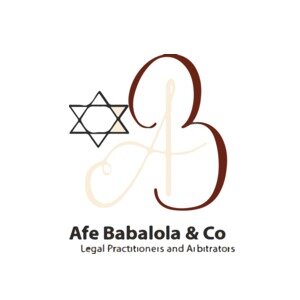Best Debt & Collection Lawyers in Ibadan
Share your needs with us, get contacted by law firms.
Free. Takes 2 min.
List of the best lawyers in Ibadan, Nigeria
Nigeria Debt & Collection Legal Questions answered by Lawyers
Browse our 2 legal questions about Debt & Collection in Nigeria and read the lawyer answers, or ask your own questions for free.
- How do we recover our debt
- Our neighbor in Kuje, market collected goods worth =4407500 on credit to pay as soon as he sold the goods(Highland tea). However, after selling the tea, he converted the proceeds to his other businesses. Since, February 2024, he paid only =N1300000, with =N3107500 outstanding. All efforts to get him paid... Read more →
-
Lawyer answer by Afe Babalola & Co. (Emmanuel Chambers)
This situation involves a breach of contract and possibly conversion (misuse of funds). Here's a step-by-step approach to resolve this issue legally:1. Have a lawyer send a Formal Demand Letter2. Initiate Legal Action (If No Response) . File a claim...
Read full answer - How can I deal with a person that is owing me cooperative money and is unwilling to pay.
- Payment of debt
-
Lawyer answer by Afe Babalola & Co. (Emmanuel Chambers)
Dealing with someone who owes cooperative money and is unwilling to pay can be challenging, but you can take the following steps to handle the situation constructively and legally:1. Open CommunicationReach Out Directly: Initiate a calm and respectful conversation with...
Read full answer
About Debt & Collection Law in Ibadan, Nigeria
Debt and collection law in Ibadan, Nigeria, forms a vital part of the financial and economic landscape. With an expanding economy, the need for creditors to recover loans and for debtors to have a clear understanding of their rights and obligations has heightened. In Ibadan, debt recovery is governed by local and national regulations, with legal processes put in place to ensure fair practices. Creditors seeking to recover debts rely on legal frameworks to pursue recovery without resorting to unethical practices, while debtors are afforded certain protections under the law to guard against fraudulent or unfair collection practices.
Why You May Need a Lawyer
There are several common situations in which individuals or businesses may require legal assistance in the realm of debt and collection in Ibadan. These include:
- Being pursued by creditors and needing guidance on legal protections available to you as a debtor.
- Creditors seeking to recover unpaid debts from individuals or companies and requiring legal advice on the correct procedures to follow.
- Disputes over the amount of debt owed or the terms of repayment, where legal intervention can facilitate resolution.
- Requiring assistance navigating the local court system if a debt collection case proceeds to litigation.
- Facing harassment by unlawful debt collectors and needing protection and recourse.
- Needing clarification on existing debt agreements or the drafting of new agreements that are legally sound.
Local Laws Overview
Debt and collection in Ibadan, Nigeria, are subject to both federal laws, like the Moneylenders Act, and local guidelines. Key aspects of these laws include:
- The requirement for creditors to pursue debt recovery through legally recognized channels.
- Provisions that protect debtors from unfair collection practices and exploitation by unethical creditors.
- The establishment of debt recovery procedures that creditors must adhere to, including several steps before litigation.
- The roles of the courts in adjudicating debt disputes, ensuring fair and just processes.
- Regulations around interest rates and fees that can be charged on loans and debts.
Frequently Asked Questions
What should I do if I receive a debt collection notice?
It's crucial to review the notice carefully and verify its authenticity. Contacting a legal professional can provide clarity and recommend steps such as negotiating with the creditor or disputing the debt if it's invalid.
How can I protect myself from aggressive debt collectors?
Know your rights under Nigerian law, which protects against harassment. You can report aggressive debt collectors to appropriate authorities or seek legal counsel for possible remedies and protection.
Can a creditor take legal action against me if I am unable to pay my debt?
Yes, a creditor can initiate legal proceedings, but they must follow lawful procedures. Legal advice can help you understand potential outcomes and negotiate terms if possible.
What is the role of the court in debt collection matters?
The court provides a forum for legal resolution of disputes between creditors and debtors. It ensures due process is followed and that both parties are given a fair chance to present their cases.
Are there any regulations regarding interest rates on debts?
Yes, there are legal stipulations regarding how much interest can be charged, and exceeding these could be a violation of the law. Verifying terms with a legal professional is advisable.
How does one legally recover unpaid debts from a business?
Recovering business debts involves several steps: Negotiation, formal demand notices, and possibly legal action through the court system if necessary. Legal advice is crucial for navigating these steps correctly.
What if I disagree with the amount claimed by the creditor?
You have the right to dispute the amount. Providing evidence, seeking clarifications, and involving a lawyer can help resolve such disagreements.
What is a statute of limitations, and does it apply to debts?
It's a law that sets the maximum period one can wait before initiating legal proceedings, including debt recovery. Once expired, recovery through legal action may not be possible.
Can a lawyer help negotiate my debt repayments?
Absolutely. Lawyers can negotiate terms on your behalf, potentially securing more favorable repayment plans or settlements with creditors.
Is bankruptcy an option under Nigerian law?
Yes, although it's complex and involves legal proceedings that can have long-term financial repercussions. Legal counsel is recommended to explore this option thoroughly.
Additional Resources
The following resources can be beneficial for those seeking legal advice in debt and collection matters in Ibadan:
- Nigerian Bar Association (Ibadan Branch): Offers access to qualified legal professionals.
- Oyo State Judiciary: Provides information on court procedures and legal forms.
- Consumer Protection Council of Nigeria: Offers guidance on consumer rights, including debt-related issues.
- Local Legal Aid Clinics: These may offer pro bono services or advice tailored to your financial situation.
Next Steps
If you require legal assistance pertaining to debt and collection in Ibadan, consider the following steps:
- Gather all relevant documents and correspondences related to the debt in question.
- Consult with a lawyer who specializes in debt and collection law to understand your rights and options.
- Engage the services of a reputable law firm if necessary, to represent your interests effectively.
- Consider reaching out to local legal aid organizations for guidance, particularly if cost is a concern.
Lawzana helps you find the best lawyers and law firms in Ibadan through a curated and pre-screened list of qualified legal professionals. Our platform offers rankings and detailed profiles of attorneys and law firms, allowing you to compare based on practice areas, including Debt & Collection, experience, and client feedback.
Each profile includes a description of the firm's areas of practice, client reviews, team members and partners, year of establishment, spoken languages, office locations, contact information, social media presence, and any published articles or resources. Most firms on our platform speak English and are experienced in both local and international legal matters.
Get a quote from top-rated law firms in Ibadan, Nigeria — quickly, securely, and without unnecessary hassle.
Disclaimer:
The information provided on this page is for general informational purposes only and does not constitute legal advice. While we strive to ensure the accuracy and relevance of the content, legal information may change over time, and interpretations of the law can vary. You should always consult with a qualified legal professional for advice specific to your situation.
We disclaim all liability for actions taken or not taken based on the content of this page. If you believe any information is incorrect or outdated, please contact us, and we will review and update it where appropriate.










